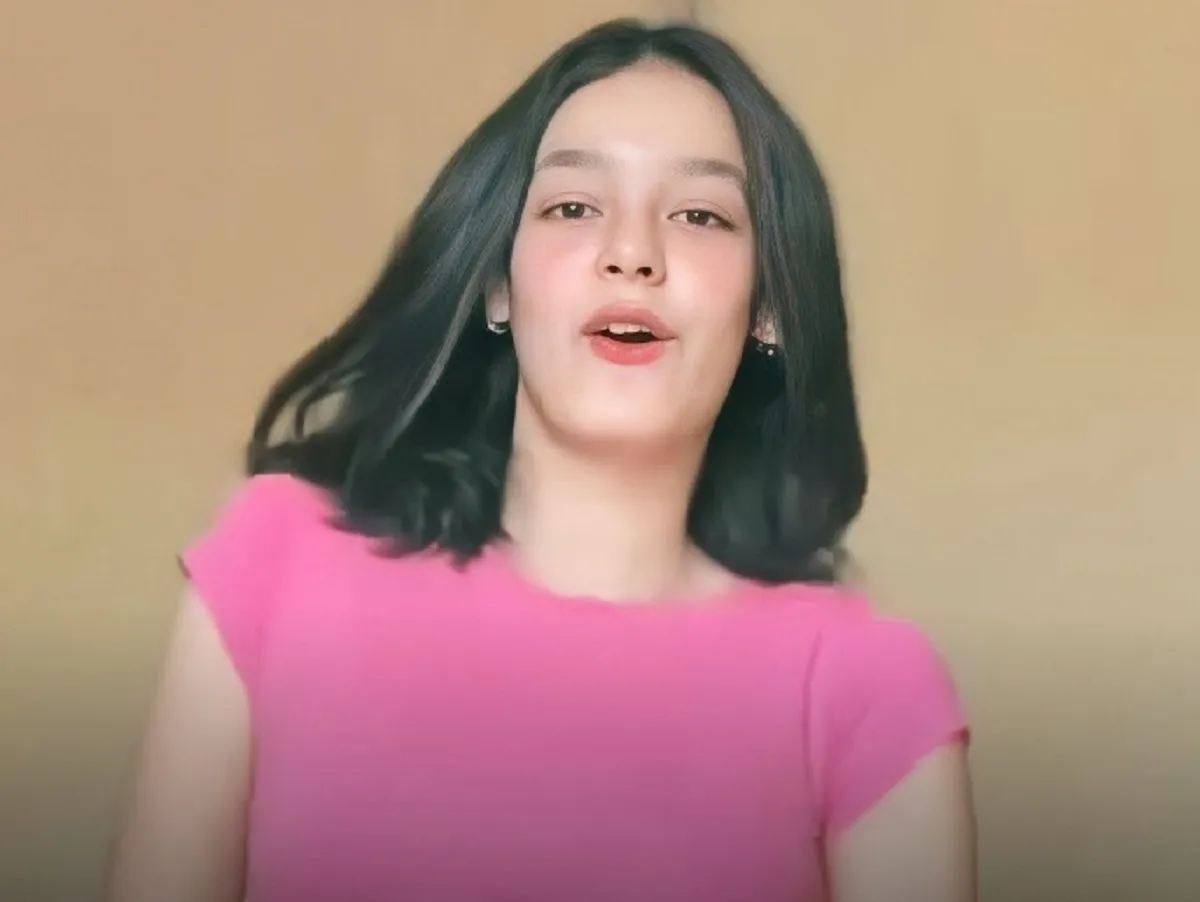Understanding The Discussion Around 'Subha Shree Sahu Leaked Video': A Look At Digital Privacy And Online Ethics Today
In our very connected world, certain search terms can suddenly become very popular, drawing lots of attention and curiosity. One such term that has, you know, caught many people's eyes recently is "subha shree sahu leaked video." This phrase, like many others that involve sensitive personal content, really brings up some big questions about privacy, how information spreads online, and what our responsibilities are as internet users. It's a bit of a complex situation, isn't it, when private matters seem to spill out into the public view.
The internet, as a matter of fact, offers amazing ways to connect and share, but it also comes with its own set of challenges, especially when it comes to personal information. When terms like "leaked video" start trending, it's not just about the content itself, but it's also about the wider implications for individuals and their personal space. We really need to think about how quickly things can spread and the impact that has, you know, on people's lives.
So, this article aims to talk about the conversations around "subha shree sahu leaked video" by looking at the bigger picture of digital privacy and the ethical choices we all make online. We'll explore why such terms grab attention and, arguably, what we can all do to make the internet a safer and more respectful place for everyone. It's about being more mindful, in a way, of our digital actions.
Table of Contents
- Understanding the Search Term and Its Context
- The Meaning of 'Subha': A Look Beyond the Headline
- The Delicate Balance of Online Privacy
- The Ripple Effect on Individuals
- Our Role in Digital Ethics and Responsible Sharing
- Protecting Your Digital Footprint
- Media Literacy and Critical Thinking
- The Legal and Ethical Landscape of Online Content
- Frequently Asked Questions (FAQs)
- Moving Forward with Mindful Online Behavior
Understanding the Search Term and Its Context
When a phrase like "subha shree sahu leaked video" starts getting a lot of searches, it often means there's a strong public interest, or perhaps just curiosity, about a particular situation or person. This interest, you know, can come from various places, like social media chatter, news reports, or just people talking amongst themselves. It’s pretty common, actually, for search trends to reflect current events or discussions happening in the wider world.
However, it's really important to remember that a search term doesn't always tell the whole story. The phrase "leaked video" itself, in a way, suggests a breach of privacy, which is a serious matter. When we look up such terms, we're not just looking for information; we're also, arguably, stepping into a situation that might involve someone's personal life. So, it's vital to approach these searches with a good deal of thought and care.
The sheer volume of searches for terms like "subha shree sahu leaked video" shows how quickly information, or sometimes even misinformation, can travel across the internet. It highlights how connected we all are and, at the same time, how easily private moments can become public topics of discussion. This phenomenon, you know, calls for us to be more mindful about the content we consume and share.
- Denzel Washington Training Day
- Ifsa Sotwe Turk
- Post Nirvana
- Scream Vii Everything You Need To Know About The Upcoming Horror Sequel
- The Enigmatic Journey Of Theo James A Star In The Making
The Meaning of 'Subha': A Look Beyond the Headline
It's interesting, actually, how names can carry different meanings and associations. The name "Subha" itself, for example, has a rich background that goes beyond any single trending search term. In some cultures, "Subha" refers to a string of Muslim prayer beads, used to help count recitations and focus during personal prayers. The worshipper, as a matter of fact, touches one bead at a time while reciting words of dhikr, which is a really contemplative practice.
These prayer beads, sometimes called a Subḥah, have units, usually 100, 25, or 33, that represent the names of God. As the beads, made of wood, bone, or precious stones, are touched one by one, Muslims may recite prayers. It's quite similar, you know, to the japamala used in Hinduism, Jainism, Sikhism, and Buddhism, or the rosary used in Catholicism. The care put into the materials, apparently, shows how important these items are.
Furthermore, "Subha" also appears in literature. Rabindranath Tagore, for instance, wrote a short story titled "Subha." In this story, he really explores the difficulties faced by a young girl named Subhashini, or Subha for short, who happens to be deaf and mute from birth. The story, in a way, delves into themes of loneliness and the limited opportunities for women with such impairments, showing how her lack of speech was often perceived. Pratap, a character in the story, respected Subha for her quiet nature, showing his affection by calling her "Su." So, the name itself has a history of representing quiet strength and, perhaps, a certain vulnerability in a literary context.
The Delicate Balance of Online Privacy
The very idea of a "leaked video" immediately brings up big concerns about privacy. In our digital world, it's pretty easy for personal information, including videos or pictures, to spread far and wide without someone's permission. This can happen, you know, through hacking, careless sharing, or even just someone acting maliciously. The moment something is online, it's almost, arguably, out of your control, which is a scary thought.
Maintaining personal privacy online is a bit like walking a tightrope. We share so much of our lives on social media and various platforms, sometimes without fully realizing how widely that information can travel or who might eventually see it. This is why, you know, understanding privacy settings and thinking before you post is really important. A single click, in a way, can have lasting effects.
The constant push for content and immediate updates, actually, sometimes makes us forget the boundaries between public and private. For individuals, a privacy breach can feel like a huge invasion, leaving them feeling very exposed and helpless. It's a reminder, you know, that the internet, for all its good, also has a very real dark side when it comes to personal space. You can learn more about online privacy on our site.
The Ripple Effect on Individuals
When a personal video or private information is shared without permission, the impact on the person involved can be absolutely devastating. It's not just about the immediate embarrassment; it can lead to very serious emotional distress, damage to one's reputation, and even, you know, problems in their personal and professional life. The feeling of being exposed, arguably, is something that can stay with someone for a very long time.
The internet, as a matter of fact, never really forgets. Once something is out there, it's extremely difficult, if not impossible, to completely remove it. This means that a so-called "leaked video" can haunt an individual for years, popping up again and again, even if the original incident was years ago. It's a pretty harsh reality of our digital existence, you know.
Beyond the individual, these incidents can also affect their families and friends. The stress and shame can spread, creating a very difficult situation for everyone involved. It really highlights, in a way, the importance of empathy and thinking about the human cost behind every trending hashtag or sensational headline. We should, you know, always remember there's a real person behind the screen.
Our Role in Digital Ethics and Responsible Sharing
As internet users, we all have a part to play in creating a more ethical online environment. When we come across sensitive content, especially something that seems to be a breach of privacy, our first reaction should be to think critically, you know, before we act. Sharing such content, even if it's just to comment on it, can actually contribute to the harm.
It's really important to ask ourselves: Is this information verified? Am I contributing to someone's distress by sharing this? Does this respect someone's privacy? These questions, arguably, help us make more responsible choices. Simply clicking "share" without thinking can have very real consequences for another person. We should, you know, always try to be part of the solution, not the problem.
Choosing not to engage with or spread content that seems to violate someone's privacy is a powerful way to show digital empathy. It helps to stop the spread of harmful material and, in a way, supports a more respectful online community. This is, you know, a simple yet very effective step we can all take every single day.
Protecting Your Digital Footprint
In light of these discussions, it's a good time to think about our own digital footprint. What information are we sharing online? Who can see it? Regularly checking and adjusting your privacy settings on social media and other platforms is, you know, a very smart thing to do. It's like, really, putting a lock on your digital front door.
Being careful about what you post, who you connect with, and what permissions you grant to apps and websites can significantly reduce your risk of privacy breaches. Think twice, for example, before sharing very personal details or images. Once they're out there, it's nearly impossible to get them back. This is, you know, a pretty basic but important rule.
Using strong, unique passwords and enabling two-factor authentication on your accounts also adds extra layers of security. These small steps, in a way, can make a big difference in keeping your private life, you know, just that – private. It’s about being proactive, essentially, in managing your online presence.
Media Literacy and Critical Thinking
When terms like "subha shree sahu leaked video" gain traction, it highlights the very real need for strong media literacy skills. This means being able to tell the difference between real news and rumors, understanding how information is presented, and questioning the sources. Not everything you see online, you know, is accurate or trustworthy.
Developing critical thinking helps us avoid falling for clickbait or sensational headlines that are designed to grab attention rather than inform. It means taking a moment to pause, to look for other sources, and to consider the potential motivations behind the content. This is, you know, a skill that's more important than ever in our information-rich world.
Teaching ourselves and others to be smart consumers of online content is, arguably, one of the best defenses against the spread of misinformation and harmful material. It empowers us to make better choices and, in a way, helps to build a more informed and responsible online community. We should, you know, always strive to be well-informed.
The Legal and Ethical Landscape of Online Content
The sharing of private content without consent often has serious legal consequences. Many countries, as a matter of fact, have laws against the non-consensual sharing of intimate images or videos, and these laws are becoming stricter as digital privacy becomes a bigger concern. Violating someone's privacy in this way can lead to very significant penalties.
Beyond the law, there are also clear ethical boundaries. Respecting someone's privacy, even if you find their personal content online, is a fundamental ethical principle. It’s about treating others with the same dignity and respect you would want for yourself. This ethical responsibility, you know, applies to everyone who uses the internet.
Platforms themselves are also increasingly being held accountable for the content shared on their sites. They are, you know, working to implement policies and tools to remove harmful content and protect user privacy. However, the ultimate responsibility, arguably, also rests with individual users to act ethically and report inappropriate content when they see it. You can also find more information on this page about online content policies.
Frequently Asked Questions (FAQs)
What should I do if I come across a "leaked video" online?
If you happen to see what appears to be a "leaked video," it's really best not to share it, download it, or even click on it. Engaging with such content, you know, can contribute to its spread and cause further harm to the person involved. Instead, you could consider reporting it to the platform where you found it, as most platforms have policies against non-consensual sharing. It's about being responsible, in a way, with what you see.
How can I protect my own privacy online?
Protecting your privacy online involves a few key steps. You should, arguably, regularly check and adjust the privacy settings on all your social media accounts and apps to limit who can see your information. Be very careful about what personal details or photos you share publicly. Using strong, unique passwords and enabling two-factor authentication for your accounts also adds a good layer of security, you know. It's all about being a bit more aware of your digital presence.
Why do terms like "subha shree sahu leaked video" trend?
Terms like "subha shree sahu leaked video" often trend because of public curiosity, social media discussions, or sometimes even misinformation spreading quickly. The sensational nature of such phrases, you know, can grab a lot of attention, leading many people to search for more information. It's a reflection, in a way, of how fast news, or rumors, can travel across the internet, especially when something feels very personal or controversial.
Moving Forward with Mindful Online Behavior
The discussion around "subha shree sahu leaked video," you know, serves as a very important reminder about the ongoing challenges of digital privacy and the need for ethical conduct online. As we continue to live more of our lives in the digital space, it's really up to all of us to be more thoughtful about how we interact with information, especially when it involves someone's personal life.
Being a responsible digital citizen means making conscious choices: choosing not to spread harmful content, choosing to verify information before believing it, and choosing to treat others with respect, even online. These choices, in a way, contribute to a healthier and safer internet for everyone. It's a pretty big responsibility, actually, that we all share.
Ultimately, our collective actions shape the online world we inhabit. By promoting empathy, respect, and critical thinking, we can help create an internet that prioritizes human dignity and privacy. This is, you know, a goal that’s truly worth working towards every single day.
- Emily Compagno Children
- Player 125
- Paleseafoam Leaks Of
- Roma Downey Feet
- Morgan Wallen Setlist Miami

Unraveling The Mystery Of Subha Shree Sahu Viral MMS

Subhashree Sahu Leaked MMS Controversy in 2025: What Happened?

Subhashree Sahu Viral Video Leaked Scandal Sparks Controversy Online